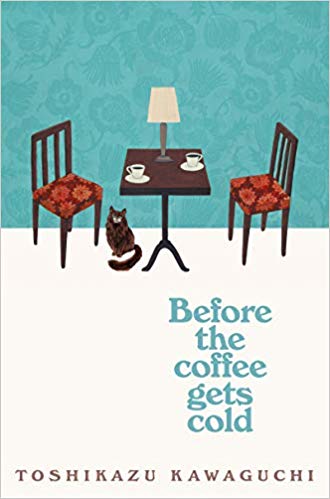

In addition to the rule about staying in the cafe, a few more narrow in the journey: nothing that happens in the past can change the present, it can only happen in one specific seat, you can only interact with people who have been in the cafe, and there’s a short time limit on each person’s journey. Kawaguchi limits the action to within the cafe and focuses on the staff and a small number of regular customers. Removed from the constraints of linear time, time travel narratives have a propensity to become unwieldy, but Kawaguchi’s greatest contribution to the genre, and perhaps his highest accomplishment in the novel, is the strictness of the rules he imposes on time travel. Instead, the novel takes place entirely inside a small basement cafe. You’ll find no shiny time travel machines – not even a DeLorean – in Before the Coffee Gets Cold. At times, Kawaguchi’s hand is a bit too prominent, but despite the occasional clumsiness, the narrative is deeply moving.

Yet only time travel fiction allows its characters an opportunity to truly return to where its readers can’t.īefore the Coffee Gets Cold, the debut novel from playwright Toshikazu Kawaguchi, may explore similar ground to its predecessors in the genre, but it inventively limits the mechanics of its time travel to the confines of a small cafe, and is all the more resonant for it.

Countless literary works, both fictional and not, explore our innate longing to return to the past, to experience a moment once again, and perhaps find some solace for our aching souls. Regret and its effects are no strangers to books.


 0 kommentar(er)
0 kommentar(er)
